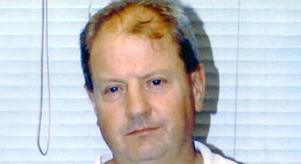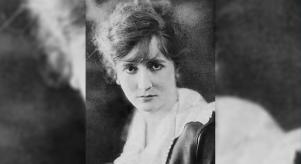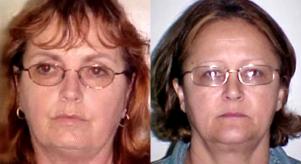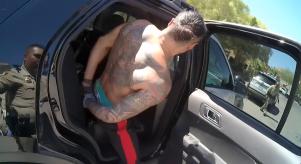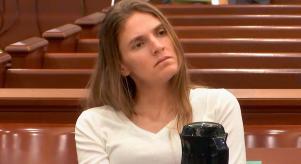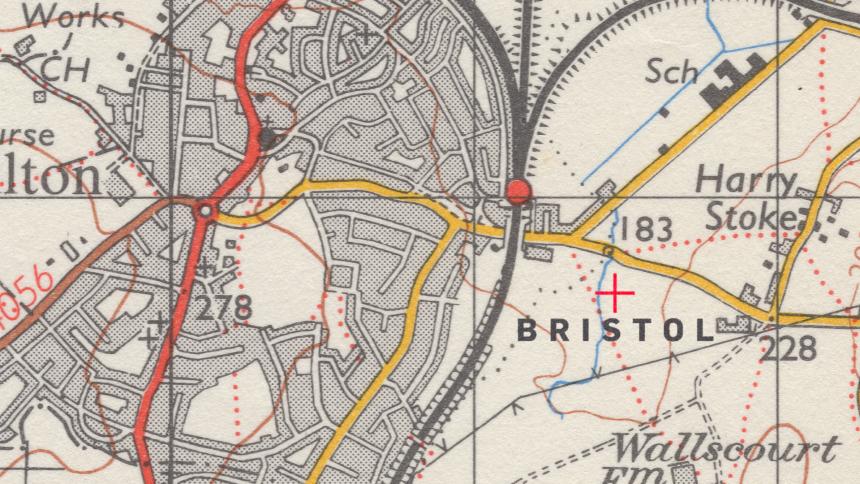
Bristol: crime profile
Katherine Kelly, star of acclaimed crime dramas Happy Valley and Cheat, turns her attention to real-life homicides in the latest series of Murdertown. Once again, she visits towns and cities across the UK to discover how police tracked down local killers, and how the crimes affected those in the community.
In Bristol, the focus is on the murder of 18-year-old Louise Smith in the mid-90s. The story of her disappearance after a night out on Christmas Eve, and the cutting-edge DNA detective work which snared her killer is told in intricate detail.
Of course, being the bustling metropolis that it is, Bristol has had to deal with plenty of other murders over the years. Here are just a few of the others that form a dark strand in the city’s long history, beginning with the crime that became a British media sensation.
In December 2010, the whole country was distracted from its Christmas preparations by the grim saga of Jo Yeates – a young landscape architect who vanished into thin air after a night out with colleagues in Bristol. The news broke when her boyfriend, who’d been away for the weekend, returned to their flat to find Jo missing. Her phone was there, along with her purse and keys, but where was Jo?
The worst-case scenario was confirmed when Jo’s body was found on a snowy Christmas morning, dumped a few miles from the flat. Questions swirled in the media, and the tabloids went into overdrive when Jo’s 65-year-old landlord, Christopher Jefferies, was arrested on suspicion of her murder.
But Jefferies – whose ‘eccentric’ appearance sparked a storm of snide and suspicious commentary in the papers – was innocent. Attention soon turned to clean-cut 32-year-old Dutch engineer Vincent Tabak, who lived with his girlfriend next door to Jo. Tabak had initially tried to put Jefferies in the frame, telling the police he’d seen the landlord driving around on the night of Jo’s disappearance. But Tabak’s edgy behaviour, and intense interest in the case, soon raised red flags for detectives.
Tabak eventually confessed to manslaughter, alleging that Jo had invited him into her flat and flirted with him. According to Tabak, she then started screaming when he made a pass at her, and he accidentally strangled her to death while trying to calm her down. Given the numerous injuries inflicted on Jo, this incredible tale was unsurprisingly rejected and he was caged for murder.
Journalists were also shamed for their prurient coverage of the story, and how they’d demonised Christopher Jefferies. Headlines had dubbed the innocent landlord a ‘peeping tom’ and referred to him as the ‘Strange Mr Jefferies’. Even his taste in ‘avant-garde films’ was highlighted as evidence of his creepy eccentricity. Jefferies was later awarded libel damages and gave evidence during the Leveson Inquiry into press ethics in the wake of the News of the World phone-hacking scandal.
In stark contrast to the Jo Yeates case, which is likely to remain forever vivid in the public consciousness, the 1987 rampage of Kevin Weaver has been almost completely forgotten. That’s probably because it’s been overshadowed by the notorious Hungerford massacre which took place shortly before and saw a loner named Michael Ryan fatally shoot 16 people.
While the country reeled from the massacre, 24-year-old Bristolian man Kevin Weaver was taking notes. A gun fanatic who was obsessing bitterly over his break-up with ex-fiancée Alison Woodman, Kevin Weaver took disastrous inspiration from Michael Ryan’s homicidal onslaught. He resolved to murder Alison at her place of work.
This is your lucky day...
Such was his frenzied state of mind that Weaver inexplicably turned on his own family first. Reasoning to himself that he required his sister’s car to travel to Alison’s office, and assuming that his sister wouldn’t lend it to him, he smashed her head in with a hammer. Then, to spare his doting mother the pain of seeing what he’d done, he murdered her too when she came home for lunch.
Leaving the bodies in the blood-splattered hell-scape of the house, he drove over to Alison Woodman’s workplace, where he burst in wielding a shotgun. Here, tragically, he shot and killed her colleague David Pursall, who’d only recently become the father of twins. More shots claimed the life of another office worker, John Peterson. Alison herself, the very reason for the rampage, was spared – Weaver evidently couldn’t bring himself to execute her, saying ‘This is your lucky day’.
Moments later, on seeing him walking with the gun in hand, a bystander told him, ‘Don’t be silly, put it down’. Remarkably, Weaver didn’t kill him, and was soon apprehended and locked away without any more violence. It later transpired Weaver actually had his gun license revoked the previous year, and he only had it reinstated when both Alison and his doomed mother gave positive testimonials about his character to the police.
Bristol has also been the scene of an intriguing whodunit which has never been solved. This was the murder of Robert Parrington Jackson, the manager of a local cinema who was shot dead while an audience obliviously watched a film called The Light That Failed.
It was on a May evening in 1946 that the 33-year-old manager was gunned down. As the story goes, the fatal shot coincided with a gun being fired in the film itself, which masked the sound of the real-life attack. But why was he killed? Was it a crime of jealous rage – perhaps the jealous husband or boyfriend of someone Robert Parrington Jackson, a former actor and Royal Navy officer, had been romancing?
The truth has never come out, though back in 1989 a gangster called Billy ‘The Fish’ Fisher allegedly confessed to the killing on his deathbed, saying he’d been robbing the cinema and had been interrupted by Parrington Jackson. It’s a reasonable enough story, as there was the equivalent of £25,000 in today’s money in the cinema that day.
The truth has never come out, though back in 1989 a gangster called Billy ‘The Fish’ Fisher allegedly confessed to the killing on his deathbed, saying he’d been robbing the cinema and had been interrupted by Parrington Jackson. It’s a reasonable enough story, as there was the equivalent of £25,000 in today’s money in the cinema that day.
The case, however, remains officially unsolved, and is the oldest cold case that’s still open and under review by Avon and Somerset police.
Watch Murdertown season 2, Mondays at 9pm.

